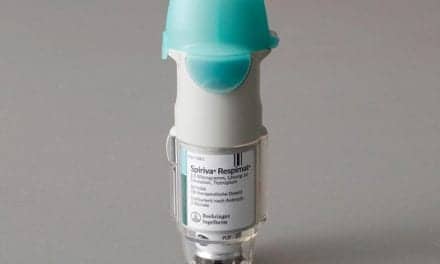Long-acting beta-agonists and inhaled corticosteroids are used to treat chronic obstructive pulmonary disease (COPD), but their effect on survival is unknown, according to the New England Journal of Medicine.
In a worldwide experiment known as the TORCH Study, researchers compared salmeterol at a dose of 50 µg plus fluticasone propionate at a dose of 500 µg twice daily (combination regimen), administered with a single inhaler, with placebo, salmeterol alone, or fluticasone propionate alone for a period of 3 years.
Of the 6,112 patients in the efficacy population, 875 died within 3 years after the start of the study treatment. All-cause mortality rates were 12.6% in the combination-therapy group, 15.2% in the placebo group, 13.5% in the salmeterol group, and 16.0% in the fluticasone group. The combination-therapy group was a reduction in the risk of death of 17.5%.
The mortality rate for salmeterol alone or fluticasone propionate alone did not differ significantly from that for placebo. As compared with placebo, the combination regimen reduced the annual rate of exacerbations and improved health status and spirometric values. There was no difference in the incidence of ocular or bone side effects.
The study concluded that the reduction in death from all causes among patients with COPD in the combination-therapy group did not reach the predetermined level of statistical significance, however, there were significant benefits in all other outcomes among these patients.
To read the full abstract, click here.








